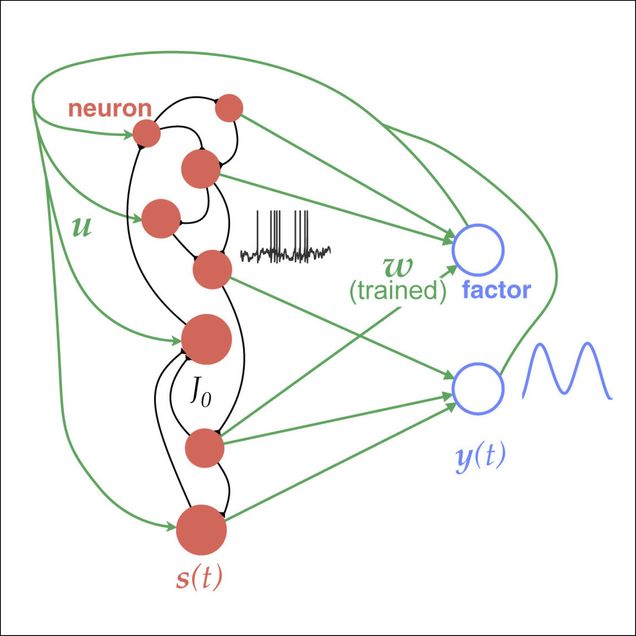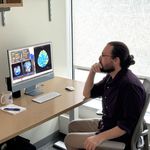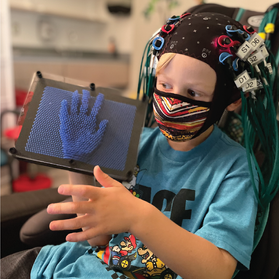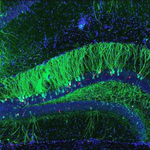Research
The Center for Systems Neuroscience (CSN) and its affiliated labs bring together neuroscience researchers from across Boston University (BU), spanning two campuses, four schools and colleges, and numerous departments. While the research interests of CSN faculty represent a wide array subjects within systems neuroscience, they may be broadly categorized into ten research areas.
Attention & Perception

Two major issues in neuroscience are how the brain perceives sensory information and how the brain allocates its limited processing power to relevant stimuli at a given time. Scientists at CSN are tackling these problems through studying attention and perception in humans, animals, and artificial systems.
Faculty who research in this area
Computational Neuroscience
 BU faculty are at the forefront of research in computational neuroscience. This work includes research that explores the dynamics of neural circuits and work on the functional capabilities of adaptive networks. Faculty use techniques of computational neuroscience to model physiological dynamics of cortical circuits and link this to neurophysiological data. The Graduate Program for Neuroscience includes a specialized track for students studying computational neuroscience within faculty laboratories.
BU faculty are at the forefront of research in computational neuroscience. This work includes research that explores the dynamics of neural circuits and work on the functional capabilities of adaptive networks. Faculty use techniques of computational neuroscience to model physiological dynamics of cortical circuits and link this to neurophysiological data. The Graduate Program for Neuroscience includes a specialized track for students studying computational neuroscience within faculty laboratories.
Decision Making & Action Selection
 Understanding goal-directed behavior requires understanding the neural mechanisms of decision making and action selection. BU Researchers use a range of experimental and computational modeling techniques to understand cortical and subcortical mechanisms for decisions and motivated behavior. These techniques include neurophysiological recording of cortical activity, two-photon imaging of calcium dynamics in the cortex and basal ganglia, functional magnetic resonance imaging in humans, and detailed computational modeling of cortical and subcortical circuits.
Understanding goal-directed behavior requires understanding the neural mechanisms of decision making and action selection. BU Researchers use a range of experimental and computational modeling techniques to understand cortical and subcortical mechanisms for decisions and motivated behavior. These techniques include neurophysiological recording of cortical activity, two-photon imaging of calcium dynamics in the cortex and basal ganglia, functional magnetic resonance imaging in humans, and detailed computational modeling of cortical and subcortical circuits.
Developmental Neuroscience
 Developmental neuroscience is the study of the complex and dynamic cellular and molecular processes that shape the physical development of the brain and neural systems, as well as how environmental and genetic factors can influence the nervous system during critical periods of maturation, and how these processes influence emerging behavior and cognition. Many CSN researchers study neurodevelopmental disorders such as autism, Fragile X syndrome, and investigate possible therapies and early interventions for these and other early-detectable neurological disorders.
Developmental neuroscience is the study of the complex and dynamic cellular and molecular processes that shape the physical development of the brain and neural systems, as well as how environmental and genetic factors can influence the nervous system during critical periods of maturation, and how these processes influence emerging behavior and cognition. Many CSN researchers study neurodevelopmental disorders such as autism, Fragile X syndrome, and investigate possible therapies and early interventions for these and other early-detectable neurological disorders.
Faculty who research in this area
Diseases of the Nervous System

At the CSN, a significant portion of research is dedicated to understanding and alleviating psychiatric and neurological disorders. Researchers here are investigating causes of and treatments for diseases including mental health disorders such as anxiety and depression, as well as neurological disorders such as Alzheimer’s disease and Huntington’s disease from the molecular scale to the systems level. By leveraging resources at BU and in the surrounding area, scientists at the CSN seek to provide insights into these debilitating disorders.
Faculty who research in this area
Learning & Memory
 The CSN has an especially active and collaborative community of neuroscientists, mathematicians, and engineers focused on investigating the neural basis of learning and memory. Approaching the subject from both experimental and theoretical perspectives, researchers study the processes that underlie healthy learning and memory abilities, investigate the origins of learning and memory disorders, and develop novel therapies to treat these disorders.
The CSN has an especially active and collaborative community of neuroscientists, mathematicians, and engineers focused on investigating the neural basis of learning and memory. Approaching the subject from both experimental and theoretical perspectives, researchers study the processes that underlie healthy learning and memory abilities, investigate the origins of learning and memory disorders, and develop novel therapies to treat these disorders.
Molecular & Cellular Mechanisms
 Research at BU includes analysis of molecular mechanisms of cellular function at the level of synaptic plasticity, membrane channel conductances, and transcription factors. This includes analysis of single-cell genomics and proteomics to understand brain function and disease mechanisms.
Research at BU includes analysis of molecular mechanisms of cellular function at the level of synaptic plasticity, membrane channel conductances, and transcription factors. This includes analysis of single-cell genomics and proteomics to understand brain function and disease mechanisms.
Neuroanatomy & Circuit Mapping
 BU builds on a strong tradition of neuroanatomical research at a range of different levels, from electron microscopy to mapping of local circuits and interregional connectivity between brain areas. This includes integration of anatomical work with cutting-edge techniques in neurophysiology and behavior.
BU builds on a strong tradition of neuroanatomical research at a range of different levels, from electron microscopy to mapping of local circuits and interregional connectivity between brain areas. This includes integration of anatomical work with cutting-edge techniques in neurophysiology and behavior.
Neurophotonics
 The BRAIN initiative emphasizes developing new imaging tools for understanding neural circuit function. Many BU investigators at the Neurophotonics Center (led by David Boas) use cutting-edge techniques for imaging activity in neural circuits, including two-photon and single-photon imaging in behaving rodents, and optogenetic techniques for functional activation or inactivation of identified cell populations. Neurophotonics researchers are also developing new technologies like adaptive optics and three-photon imaging.
The BRAIN initiative emphasizes developing new imaging tools for understanding neural circuit function. Many BU investigators at the Neurophotonics Center (led by David Boas) use cutting-edge techniques for imaging activity in neural circuits, including two-photon and single-photon imaging in behaving rodents, and optogenetic techniques for functional activation or inactivation of identified cell populations. Neurophotonics researchers are also developing new technologies like adaptive optics and three-photon imaging.
Faculty who research in this area
Speech & Hearing
 Researchers at BU have a long history of conducting groundbreaking research in the science of speech and hearing, with roots tracing back to work done by faculty member Alexander Graham Bell. Today, faculty at the CSN continue that tradition, working on topics that include the neural bases of language production, auditory perception, song perception and production in birds, and disorders of hearing and language and their treatments.
Researchers at BU have a long history of conducting groundbreaking research in the science of speech and hearing, with roots tracing back to work done by faculty member Alexander Graham Bell. Today, faculty at the CSN continue that tradition, working on topics that include the neural bases of language production, auditory perception, song perception and production in birds, and disorders of hearing and language and their treatments.
